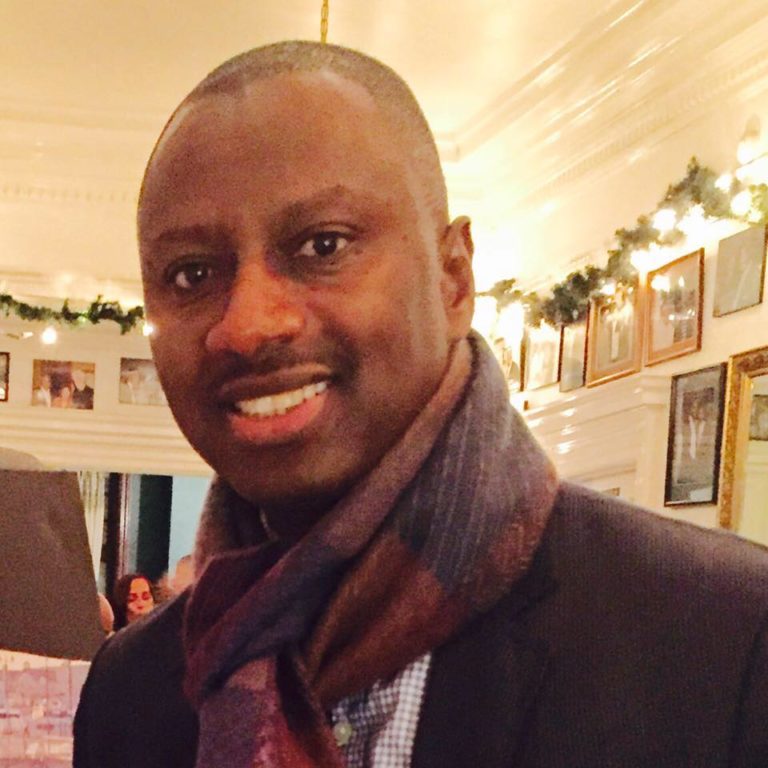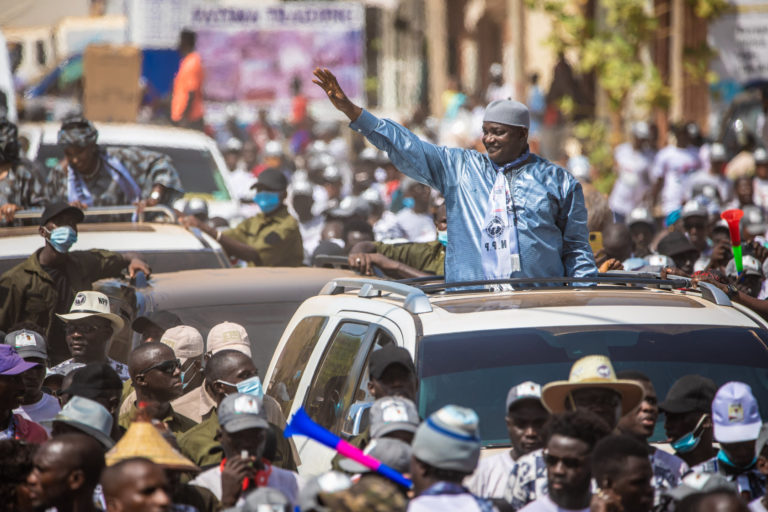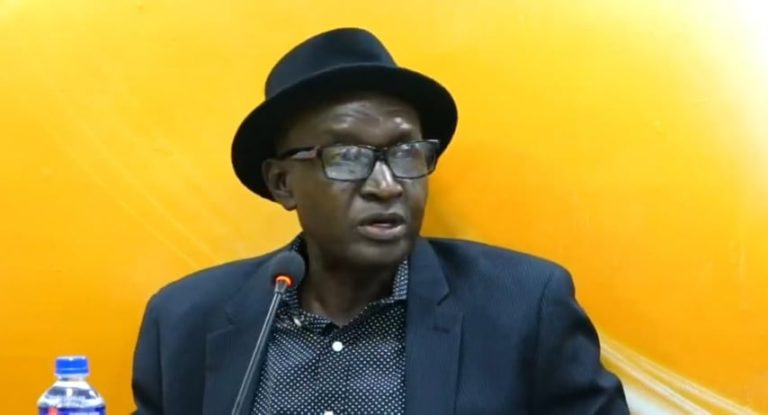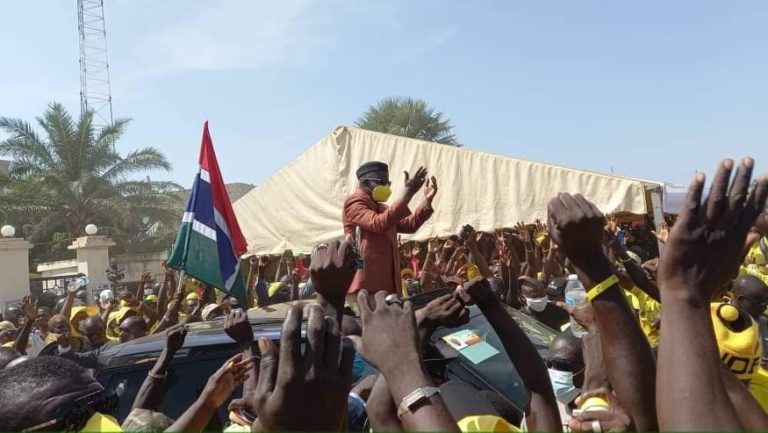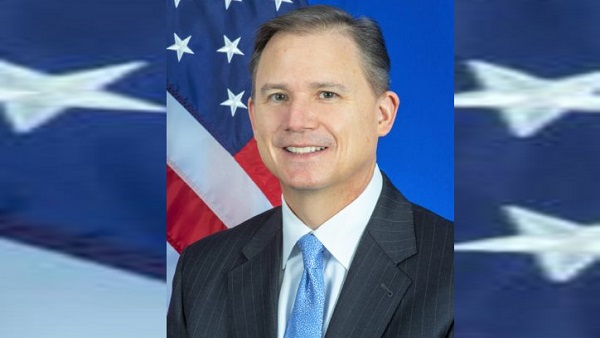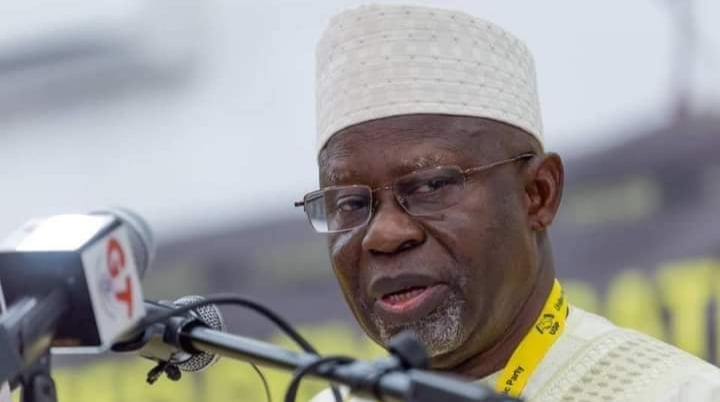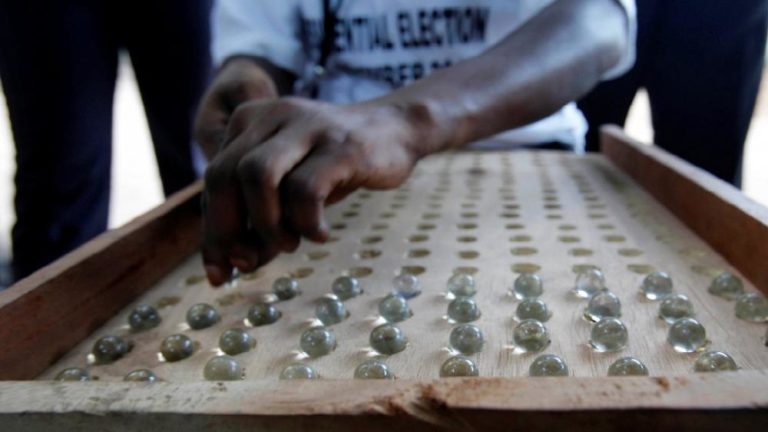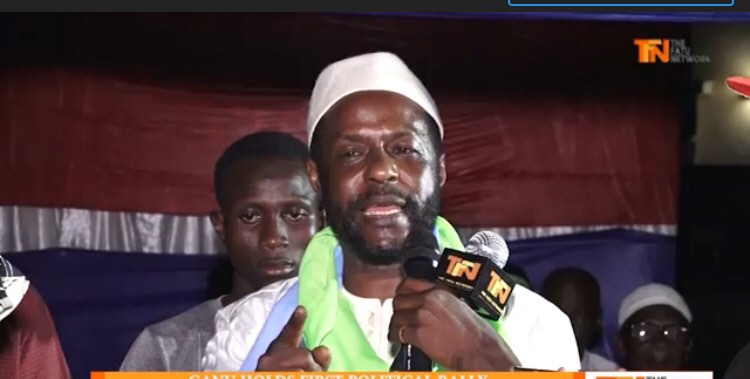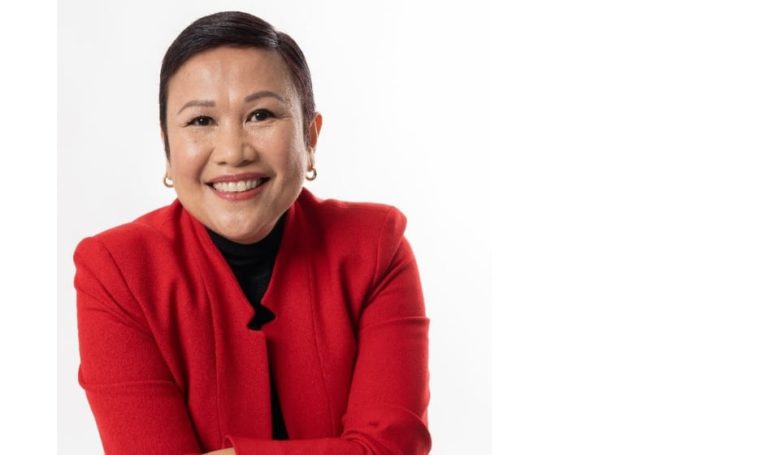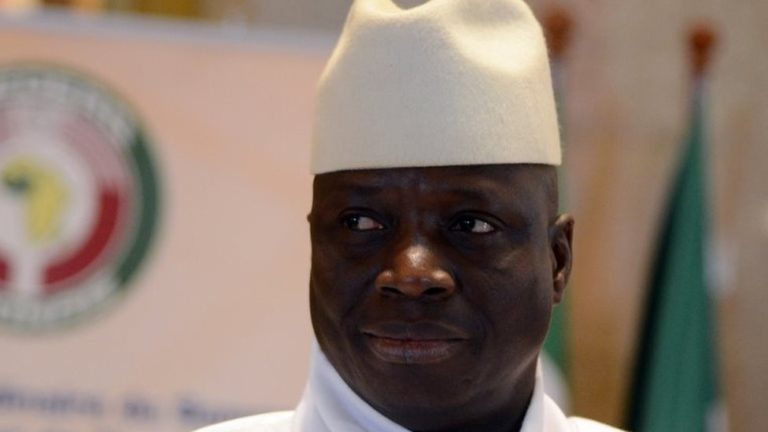Nominations for the presidency have now been completed and the Independent Electoral Commission (IEC) has produced a list of those who have made the cut. Successful candidates are now preparing for the second crucial stage of this democratic process, official campaigns. For the next three weeks, presidential hopefuls, including incumbent Adama Barrow, will be crisscrossing the length and breadth of the country, selling their agenda in every political unit of this country.
But this election will be the most consequential and competitive poll in our nation’s recent history. It is the first time in over two decades that Gambians are actively and freely engaging in a democratic process that has almost been flawless thus far, albeit the two “politically-motivated” episodes – arrest and charges of factional APRC Leader, Jerrending Sanyang, and the freezing of the business accounts of businessman cum UDP opposition sympathizer Alhagie Conteh of Dabani Electricals. While the two incidents seem small, they have the potential to impair the electoral process as they resemble dictatorial tendencies, synonymous with the past.
Without making those incidents the focus of this essay, overall, the electoral process has been freer, credit to Gambians on the other hand (they brought the change), and the government institutions to a large extent.
It is not just the freedoms and a tolerant political environment that is important to the masses given the never-ending task of State building. As the award-winning journalist, Naomi Klein noted, “Democracy is not just the right to vote, it is the right to live in dignity.” To interrogate Naomi’s points, democratic gains must be consolidated by instituting a capable government that is well-placed to guaranteeing the dignity of the citizens through meaningful sustainable development and functioning institutions. In essence, democracy is an ongoing process requiring that citizens always hold their government accountable. And there is no better way of doing that than having a consistent active voice and voting in an election.
Thus, for this election, few but critical issues should come to voters’ minds when they enter the polling booth to drop their marble. Follow this piece as I discuss those points.
Competent Leadership
While 2016 was an exceptional case – an agitated nation wanted a dictator out at all cost regardless of who led-, The Gambia must begin to inject seriousness in our governance process. To be blunt about my assessment over the last five years, governance and leadership were characterized by utter mediocrity and complete disdain for meritocracy. The last five years saw the appointments of semi-literates as advisers to the Head of State, people with clear dearth of policy knowledge or experience. The resultant effects of these appointments were several embarrassing decisions that emanated from the State House only to have them revised because they were either in contravention of the law or were non-compliance to best practices in a democracy. The bar was lowered to the extent a chef in a certain European country with no political clout or social influence could brag about placing a direct line to the President to discuss policy matters that affect the lives of the people. And to mention the elephant in the room, the President woefully failed to learn and grow on his job despite the resources and privileges at his disposal. Several opportunities for the country became lost opportunities due to the inept nature of the Head of State and his sheer lack of confidence and learnability. For example, The Gambia should have by now been playing an effective role in the comity of nations as a model of democracy given our rare history of booting out one of Africa’s most brutal dictators in the last five decades. Our story as a nation received so much international goodwill that it only takes a smart leader with a storytelling ability to sell our image and desire to develop. Alas, Barrow’s lack of self-confidence to sell this beautiful story has cost the nation. Just recently, Sierra Leonean President Maada Bio, who only ascended to power in 2018, was the only African leader participating in the global summit on Action to Achieve Equality and Inclusion on the margins of the UN General Assembly. Ghana’s Nana Akufo-Addo was also standing side by side with U.S. Vice President Kamala Harris holding a bilateral presser. Zambia’s new leader Hakainde Hichilema, who only took power a few months ago, was also with Vice President Harris in Washington. Of all these countries, The Gambia’s story is outstanding. The difference is that, their leaders, who only came to power after Barrow, have an incredible storytelling ability, vision, and the wherewithal to forge their countries’ strategic interest at the citadel of global diplomacy.
Back home, The Gambia also lost on the gains of the famous Brussels Donor Conference that garnered a whopping $1.7 billion in pledges. Government officials would always make bold claims that a good percentage of that money was received, but it is hard to imagine how much of that translated into the improvement of livelihoods. For an economy, this small, such money, when effectively utilized, should have had a profound impact on the country’s development trajectory and citizens’ livelihood.
Thus, to avoid the April 2018 Chatham House disaster, voters should consider competence in leadership. Those willing to offer their services on our behalf must be extremely competent, they must be beyond reproach. To borrow from Author John J. Pershing, “A competent leader can get efficient service from poor troops, while on the contrary, an incapable leader can demoralize the best of troops.” To want to lead a country of two million people is a serious undertaking that should require that the best of us is chosen for the top job. That is simple arithmetic! Because the bar for the presidency has been lowered, a presidential hopeful can present a poem-like single page as his manifesto before our Election House. He would eventually be received for endorsement by the highest office after his failed bid.
Therefore, competent leadership should inform voters’ choice in the election. The presidency shouldn’t be an experimental office for amateurs and unsophisticated politicians. The analogy is like asking a clueless person to enter a medical theater and begin playing with tools to perform surgical operations. Managing a state is a surgical process requiring extraordinary skills to succeed.
Draft Constitution
When the coalition leaders hit the 2016 campaign trail, they promised Heaven to abandon Dictator Yahya Jammeh’s retrogressive constitution and deliver Gambians a new progressive constitution that will adhere to democratic values. As part of this promise, they singled out the need for term limits, that no Gambian should ever rule more than two five-year terms.
Fast-forward to 2018, the Barrow-led government instituted the Constitutional Review Commission (CRC) through the National Assembly at a cost of a whopping D116M. At its launch, Barrow boldly declared, “I hold the view, as some other Gambians do, that a two-term limit for all Heads of State of the Republic should be entrenched in the new constitution.” However, it soon became apparent that Barrow’s words were mere political rhetoric meant to appease the unsuspecting public. After the CRC made wide consultations both domestically and abroad, they produced a draft constitution that won the praise of Gambians and her development partners. Indeed, constitutions can never meet the needs of everyone, but the CRC draft was generally hailed as a masterpiece for its progressive and comprehensive nature.
As citizens began to digest the provisions of the draft, leaked documents emerged from State House, showing Barrow’s displeasure at provisions he deemed “biased” and “unfair.” Of all the provisions, the section on the retroactive application of two five-year term limits that counted Barrow’s current mandate became the most frowned upon section by the Barrow’s cabinet (The Standard, 2020). To Barrow and his surrogates, the two-term mandate should start after the end of his current mandate. Simply put, Barrow wants 15 years or more in power! For a President who pledged to serve only three years and step down, serving 10 years isn’t enough a time. To Barrow, Gambians, who he let down, were unfair to him; that the current term is his luck and therefore should not be counted.
The leaked State House papers, serialized in The Standard newspaper, apparently triggered anxiety and intense debate about the fate of the draft. As the draft headed for the National Assembly, there was growing concern that Barrow and his legislative allies were hatching a plot to kill the draft national document. And the fears were confirmed when 23 of the 56 lawmakers dramatically scuttled the draft in what many Gambians concluded was the mother of all betrayals of the Barrow presidency. Had the constitution passed, The Gambia would have been in the Third Republic with a constitution befitting of the democratic order. But as many analysts have noted, one man’s interest had to force its way against the collective interest of the masses. This is something to decipher as Gambians head to the poll. Voters must reflect on this brazen betrayal of trust and hold Barrow accountable for denying Gambians a chance to have a progressive constitution.
Justice and Accountability for Jammeh-era Crimes
One would have thought that after the failure of the CRC project, Barrow would make good on the last hope of the transitional mechanism processes – accountability and justice for Jammeh-era crimes. The stories that came out of the Truth Commission were like horror series. The harrowing testimonials of the murder, rape, and torture at the behest of Dictator Jammeh brought to fore the country’s darkest chapter. The tales were so disturbing that many ever doubted that political expediency would be considered at the altar of justice and accountability. Jammeh’s victims were being mocked by his APRC supporters who continue to deny these abominable State-sanctioned crimes.
As victims bravely sat before national airwaves to tell their difficult ordeals, little did they know that they were being mortgaged by President Barrow for political expediency. Unbeknown to them, Barrow was engaged in political brinkmanship to achieve longevity of power. This is a President who never set foot at the Victim’s Center. He never invited victims to State House to console them. This is a President who rarely acknowledges the plight of the victims in his national addresses. But this is the President who hatched a perpetrator-centered approach to reconciliation by visiting Dictator Jammeh’s extended family in Kanilai.
As if that was not enough, Barrow went ahead to formally announce a marriage with Dictator Jammeh’s party, declaring the decision, “My wisest decision in my political history.” And on his nomination day, this same President declared again that his alliance with the APRC is “in the national interest.” Ex-Justice Minister Ba Tambadou must be silently weeping at the fruitless outcome of his patriotic work – that man gave his all for the transition program mechanisms. Gambian voters must reflect on this and hold Barrow accountable for they were promised #NeverAgain.
Anti-corruption and Public Sector Graft
The Barrow government has indeed crafted an Anti-Corruption Commission Bill that currently sits at the National Assembly. For whatever reason, that draft bill never seemed to move through the floor. However, this government has been hit by several corruption scandals – the unresolved fertilizer scandal involving then Agriculture Minister Amadou Omar Jallow and his deputy permanent secretary (Kerr Fatou, 2018), the Fisheries scandal that involved then Permanent Secretary Dr. Bamba Banja and Minister James Gomez (Malagen, 2020), the diplomatic passport scandal (The Standard, 2019), the infamous D33M scandal involving Barrow and the First Lady (The Fatu Network, 2018), lawmakers’ presidential brown envelop scandal (Freedom, 2018), the D2.2M Malagasy Covid-19 herbal medicine transport scandal (Malagen, 2021), etc. To cap the scandals, Barrow recently confessed that a luxurious four-wheel drive that he was driving was gifted to him by a wealthy Senegalese businessman, Kalidou Waggeh, a man alleged to have several business interests and political ties in The Gambia since 2017. That one confession alone speaks volumes of the President’s approach to public sector graft. It would have triggered an impeachment proceeding in an advanced democracy where the State institutions are strong. Alas, it came and passed without even CSOs raising a red flag.
To date, this government only brought to court one senior government official – Dr. Bamba Banja – for allegedly collecting bribes from the Chinese. A critical look at Banja’s case indicates that it’s a mere attempt to whitewashing the narrative as the State only rushed it to court knowing elections draw close. Banja’s minister, meanwhile, has been left to roam despite audios implicating him. Gomez is among a pool of other senior government officials who have been left to carry on despite their complicity/involvement in corrupt practices. In a nutshell, the Barrow administration has never taken public sector graft seriously and has seemingly turned a blind eye to this problem as confirmed by the U.S. State Department in its Investment Climate Statements of 2021 (The Standard, 2021).
Failing Security Sector Reforms, Police Force in Focus
It only takes one to read the recently published outrageous statement of Deputy Inspector General of Police Modou Sowe to understand why the country’s much-trumpeted Security Sector Reform (SSR) hasn’t still gathered steam. In that The Standard newspaper article that has now attracted the wrath of the Bar Association, Sowe claimed that executive orders from the President are “considered law.” This thinking at the police hierarchy gives one an idea of why certain actions of the police continue to worry citizens. The most recent of these actions was the disruption of a press conference and arrest of the leader of the factional APRC, Jerending Sanyang. This was a new low in the enforcement history of the police. Sowe’s statement also explains the reason why the Police Intervention Unit (PIU) would engage themselves in an administrative affair involving Kanifing Municipal Council and the Ministry of Lands. Sowe’s statement explains why Human Rights Defender Madi Jobarteh would be arrested and slammed with bogus charges of “false information and broadcasting” (Article 19, 2020). Sowe’s statement further demonstrates why the State security agents would storm radio stations, force them off the air, and arrest and detain incommunicado their journalists (The Standard, 2020). And Sowe’s statement explains why the police would deliberately arrest and harass journalists only to release them on the pretext that they were mistakenly taken in.
Of all the state security institutions, the police remain the most unreformed institution. The police have not emulated the military that has since seemingly departed from its norm and is now projecting an apolitical image. The failing of the police is due to the lack of political will towards SSR. It is troublesome that a police high command still thinks it is okay to implement whatever orders the President gives.
To conclude, the five issues discussed above should inform every Gambian voter as they prepare to cast their vote on December 4th. Voters should hold any politician who has reneged on his promises. Every voter should ask the toughest questions bearing in mind the fact that their livelihoods depend on the answers the politicians provide. Those who failed to deliver on the issues addressed above must not be voted.
Hatab Fadera is a Master of Arts Candidate in Emerging Media Design and Development at Ball State University, Indiana, USA.



